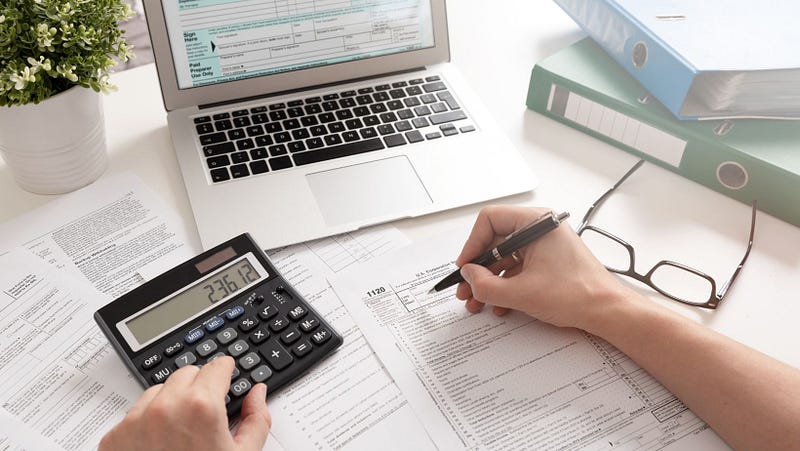Taxes on Small Businesses for Novices
While launching a small business is exciting, tax preparation is essential. The world of small business taxes can be intimidating for many novices. Tax duties might be confusing, but newcomers can handle their small business taxes with confidence if they have the correct information. It might save time and money to know the basics when it comes to deadlines and deductions.

Handling Tax Deductions for Small Businesses
Common Small Business Tax Deductions:
Taxable income can be decreased by deductible expenses. Add in business costs for things like materials, machinery, and labor costs. Those who have a designated workspace are eligible for a home office deduction.
Maintaining Documents for Tax Purposes:
Keep thorough records of your earnings and outlays. Accounting software can be used to track finances in an organized manner. As evidence of transactions, save invoices and receipts.
Paying Taxes on Small Businesses
Selecting Appropriate Tax Forms
The right tax forms must be used when it comes to small business taxes for novices. Schedule C (Form 1040) is the preferred option for small firms, although S-Corporations generally utilize Form 1120-S. Typically, partnerships submit Form 1065. In order to maintain compliance with the Internal Revenue Service (IRS), it is imperative that these forms are completed appropriately.
Timelines and Postponements
For those who are unfamiliar with small business taxes, knowing the deadlines is crucial. Generally speaking, depending on the form of entity, firms have until March 15 or April 15 to file their taxes. Asking for an extension gives you more time to file, but it doesn’t prolong the period you have to pay any back taxes. It is imperative to comply with IRS deadlines as failure to do so may result in penalties and interest.
Using a Tax Professional
For those who are unfamiliar with small business taxes, consulting a tax professional can offer invaluable advice. Tax professionals facilitate the understanding of intricate tax laws, optimize deductions, and guarantee accurate filings. Working with a tax expert can reduce stress, provide tax planning advice, and lower the possibility of tax return problems.
Conclusion
Although small business taxes might be complicated, newcomers can effectively navigate them with the correct information and techniques. Small business owners can maximize their tax filings by being aware of important deductions, keeping precise records, and consulting a professional.

To ensure compliance and maximize deductions, selecting the right tax forms, adhering to deadlines, and working with tax experts are crucial.
Novice taxpayers can maximize their possibilities and prevent overpaying taxes by carefully preparing and paying close attention to details. The tax procedure can be made even more efficient by using tools like accounting software and remaining up to date on tax regulations.
Small business owners may focus on expanding their companies and securely handle their taxes by putting these strategies into practice.
If you like this article, read more here for related posts.

